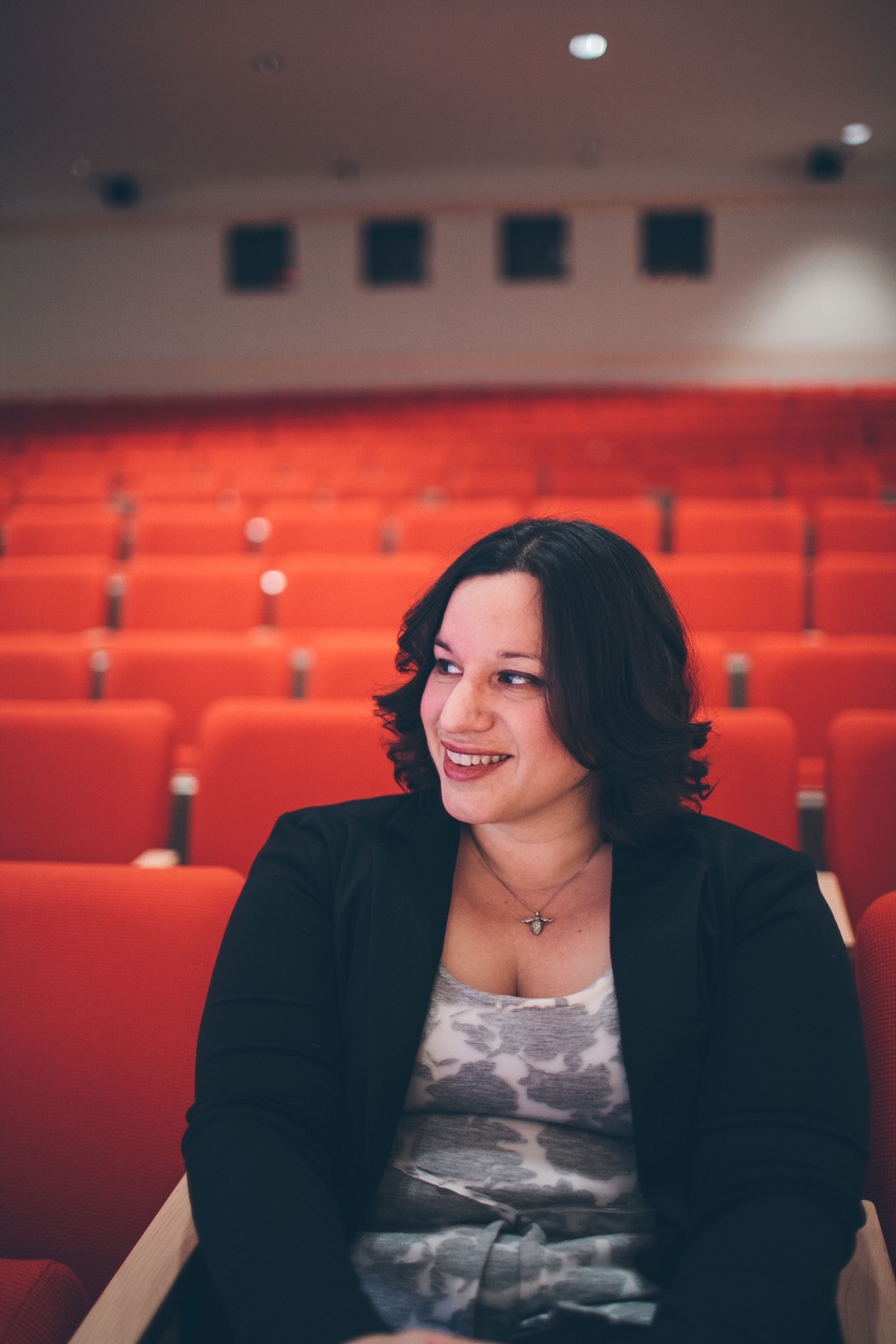Escape the ‘Speaking While Female’ Trap
Veronica Rueckert helps women find their voices“Your voice can be like a violin,” explains Veronica Rueckert, Wisconsin Public Radio host. “You can practice and make it a joyful sound. It should be joyful.”
But what Rueckert has found through her years of co-hosting WPR’s news and current events program “Central Time” is that, even conversationally, many people—especially women—are reluctant or unaware of how to use their voices. So last year, Rueckert opened her own coaching business to teach women how to take up vocal space—and embrace it.
“It’s frustrating for me to listen to people with beautiful ideas have trouble expressing them,” Rueckert says. “They could be beautiful stories if only people knew how.”
In addition to her years on the radio, Rueckert also earned a bachelor’s degree in vocal performance and trained as an opera singer, so she is keenly aware how powerful voices can be.
But she’s also aware of the challenges that could accompany a venture in verbal expression.
Many women, she says, share a similar experience; vocalizing an idea in a meeting that goes unnoticed until recast by a male co-worker. Sound familiar?
Furthermore, a Yale University study titled “Who Takes the Floor and Why” found that male executives who spoke more than their peers boosted their competency ratings by 10 percent. Women, on the other hand, saw their ratings sink by 14 percent—a phenomenon dubbed “Speaking While Female.”
Tendencies such as vocal fry—when a voice takes on a low, creaky vibration—and uptalk, wherein everything sounds like a question, are often blamed for the seeming bias against female voices.
But many men display the same tendencies, Rueckert says. They just aren’t penalized in the same way. Nonetheless, she won’t advise you to change your tone to appease others. “I want everyone to sound as much like themselves as possible,” she says.
Rueckert and her “Central Time” co-host do their best to have an equal distribution of male and female guests, but Rueckert says that can sometimes be an extraordinary challenge.
“Many of the fields we cover—political science, state politics, the economy—are dominated by men,” she says. “It’s also possible that, in the media, we’re more aware of the men because they’re more likely to be regular guests,” and that creates a cyclical pattern. It’s one Rueckert hopes will be broken sometime soon.
Rueckert’s workshops and one-on-one coaching are akin to therapy, but with a vocal aspect. On the first day of one of her workshops, held last summer, she had two people in tears.
“Your voice is like a thumbprint of who you are as a person,” she says, so it can be very emotional to let it out for the first time.
The sessions can get pretty physical, too. For example, Rueckert might have you lie on the floor with a heavy book on your stomach, or have someone try to push you over while you stand in front of everyone and try to say your piece. It’s all about learning to release your breath, she says.
Rebecca Ryan, of Next Generation Consulting and a frequent public speaker, found the sessions with Rueckert extremely rewarding, despite her vast experience. “It’s made me realize that my voice, like my body, is an instrument that can be strengthened and made more effective,” Ryan says.
But it’s not only women that Rueckert is out to help. She’s open to coaching men as well, even in coed workshops. Her next workshop will be later this spring.
“I’m naturally an extroverted introvert,” she says. It might be hard to believe of the velvet-voiced Rueckert, “but I have to push myself to speak out about this because I believe in it. It’s a labor of love.”
For more on Rueckert’s coaching offerings, go to veronicarueckertcoaching.com



